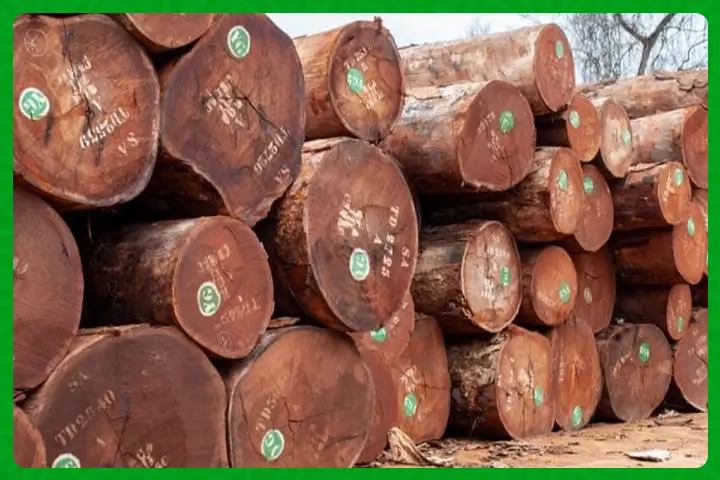
In a groundbreaking shift aimed at reshaping Cameroon’s wood industry landscape, the government has orchestrated a staggering 345% surge in log export taxes over the past six years. The rate, which stood at a modest 17.5% in 2017, catapulted to a formidable 60% by the dawn of 2023. This monumental leap, despite being initially slated for implementation on January 1, 2022, ultimately found its footing on January 1, 2023, and remains indefinitely in play.
This audacious fiscal maneuver carries an ambitious mission: to discourage the export of raw timber and breathe life into the local wood processing sector. Cameroon’s visionary stance aligns seamlessly with the overarching goal of Cemac countries to cease log shipments altogether. As the global community grapples with the urgency of sustainable practices, Cameroon’s actions resound as a clarion call for responsible resource management.
But this seismic shift is not merely about levying heavier taxes on log exports. It represents a holistic transformation of the wood industry ecosystem. Cameroon has ushered in a new era with its 2022 finance act, ushering in an array of incentives aimed at promoting local wood processing.
One of the flagship initiatives is a generous exemption from customs duties and taxes on imported appliances, equipment, materials, and tools designated for the advancement of local wood processing activities. This move lays the foundation for a thriving local industry by easing the burden on manufacturers seeking to invest in state-of-the-art machinery and technology.
Simultaneously, Cameroon has introduced an ad valorem excise duty on all imports of wooden products and furniture. This strategic move is designed to discourage the influx of finished wood products from foreign shores and encourage the populace to embrace locally manufactured furniture and office furnishings. Notably, President Paul Biya has directed the government to prioritize locally made furniture in all public procurement processes, further bolstering the sector’s growth prospects.
While these measures have been greeted with open arms by industrial sawmill and woodworking entrepreneurs, they have triggered frustration among active forest operators in the country. The Cameroon Timber Sector Group (GFBC), representing a substantial 70% of the nation’s wood exports, issued a poignant letter to the Prime Minister on December 23, 2022, decrying the measures as a “fiscal stranglehold” and even threatened to initiate a strike.
The GFBC’s plea echoed with urgency: “Your Excellency, Mr. Prime Minister, if nothing is done to preserve our industry, we are heading straight for a deluge that will jeopardize the colossal investments of our companies. Unfortunately, starting from January 2, 2023, we will be forced to go on strike, which will initially manifest as the suspension of customs declarations and will continue with placing employees on technical leave in companies. We are currently financially strangled.”
In response, the government chose to stand firm, and the threatened strike by the GFBC never materialized. Timber exports, both in raw logs (subject to a 60% exit tax) and processed wood (levied with a 15% exit tax), continued unimpeded from the beginning of 2023. According to the National Institute of Statistics (INS), the “forestry and logging” sector contributed a noteworthy CFA227 billion to Cameroon’s GDP, constituting 0.5% of the total. However, this achievement was marred by the sector’s worst performance since the fourth quarter of 2021.
While the timber exports continued, certain companies found themselves trimming their workforce due to what they perceived as a “fiscal stranglehold.” In a bold move, Marc Sarraute, the Administrative and Financial Director of Italian-owned Fabrique camerounaise de parquets (Fipcam), issued a memo on January 11, 2023. The memo announced, “With the recent tax increases in the 2023 budget law, actions taken by the customs administration to review upward the taxable values used as the basis for taxation, and the government’s silence since our notice of the suspension of customs operations, the top management, in solidarity with the Cameroon Timber Sector Group (GFBC), has decided, until further notice, to place all staff on technical unemployment, effective January 13, 2023.”
In summary, Cameroon’s bold move to hike log export taxes by a staggering 345% over six years is a testament to its commitment to nurturing a sustainable and thriving local wood processing industry. While it may have sparked dissent within the industry, it also sets the stage for a brighter future where responsible resource management and local industry growth are paramount. This transformation not only echoes Cameroon’s commitment to global sustainability but also heralds a new era for its wood sector, one that champions innovation, local manufacturing, and economic resilience.


















